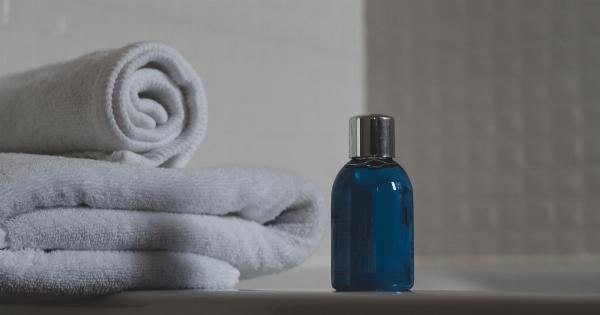Pregnancy is a beautiful journey filled with incredible experiences. However, it also comes with its fair share of challenges and precautions.
As an expectant mother, you may have questions about various aspects of your daily routine, including the safety of hot showers. In this article, we will explore everything you need to know about taking hot showers during pregnancy.
Importance of Personal Hygiene During Pregnancy
Personal hygiene plays a vital role in ensuring the well-being of the mother and baby during pregnancy. Maintaining cleanliness helps to prevent infections and other potential risks that can harm both the mother and the developing fetus.
Good personal hygiene habits include regular bathing or showering, brushing teeth, and keeping your nails clean.
Benefits of Hot Showers
A hot shower is extremely comforting and relaxing, especially when your body is going through numerous changes. It can provide relief from the common discomforts associated with pregnancy, such as backaches, sore muscles, and swollen feet.
The warm water helps to soothe and ease tension, providing a temporary escape from the physical strains of carrying a baby.
Hot showers can also enhance blood circulation, promoting better oxygen supply to the fetus. This increased circulation can help to reduce swelling in the extremities and provide an overall sense of well-being.
Furthermore, many women find that a hot shower before bed helps improve their sleep, which is often disrupted during pregnancy.
The Importance of Temperature Moderation
While hot showers offer numerous benefits, it is crucial to exercise caution and moderate the temperature. Extremely hot water can raise the body temperature to unsafe levels, potentially leading to overheating.
This increase in body temperature, especially during the first trimester, can pose risks to the developing fetus.
During pregnancy, hormonal changes can make you more sensitive to temperature changes. What may have been a comfortable temperature before pregnancy could suddenly feel scorching.
It is essential to listen to your body and make adjustments according to your comfort level.
Safe Water Temperature for Showers
Experts recommend keeping the water temperature at a safe and comfortable level. The ideal water temperature for a shower during pregnancy is lukewarm or slightly warm, around 98°F to 100°F (36°C to 38°C).
This warmth allows you to enjoy the benefits of a shower without risking overheating or raising your core body temperature to unsafe levels.
Avoid using water that is too hot or steamy, as it can increase your body temperature rapidly. Assess the water temperature before stepping into the shower to ensure it is within the safe range.
Duration of Showers
While pregnant, it is important not to spend excessive amounts of time in the shower. Prolonged exposure to warm water can cause your body temperature to rise, potentially leading to dehydration and overheating.
Experts recommend keeping showers to a maximum of 10-15 minutes. This duration allows you to enjoy the benefits of a shower without causing any harm to yourself or the developing fetus.
However, if you feel lightheaded, dizzy, or excessively fatigued during your shower, it is important to exit immediately, as these can be signs of overheating.
Precautions to Take
While hot showers are generally safe during pregnancy, it is still essential to take some precautions to ensure your well-being:.
- Check the water temperature before entering the shower to avoid surprises.
- Install a shower thermometer to accurately monitor the water temperature.
- Avoid turning the water temperature above lukewarm or moderately warm levels.
- Stay hydrated by drinking plenty of water before and after your shower.
- Consider using a shower stool or mat to prevent slips and falls, as your balance might be affected during pregnancy.
- Do not use saunas, hot tubs, or steam rooms, as they can raise your body temperature to unsafe levels.
When to Avoid Hot Showers
While hot showers are generally safe during pregnancy, there are certain situations in which it is best to avoid them and opt for cooler showers instead:.
- If you have a history of preterm labor or are at risk for developing it
- If you have a heart condition or high blood pressure
- If you have a fever or any signs of infection
- If you experience dizziness or lightheadedness during showers
- If your healthcare provider has advised against it due to any pregnancy-related complications
Always consult with your healthcare provider if you have concerns about the safety of hot showers during pregnancy.
Alternatives to Hot Showers
If you are advised against hot showers by your healthcare provider or if you simply prefer cooler showers, there are alternative ways to find comfort and relaxation:.
- Take a lukewarm bath with natural bath oils or salts to soothe your muscles.
- Use a cold compress or cool cloth on your forehead or the back of your neck to help relieve headaches or hot flashes.
- Try using a handheld fan or standing in front of a fan to cool down and regulate your body temperature.
- Practice deep breathing or meditation techniques to relax your mind and body.
Conclusion
Hot showers during pregnancy can be safe and beneficial when the water temperature is within a moderate range. Enjoying a soothing and comforting shower can provide temporary relief from the typical discomforts associated with carrying a baby.
However, it is crucial to listen to your body, moderate the temperature, and avoid extended periods of time in the shower. Always consult with your healthcare provider if you have any concerns or specific medical conditions that may require adjusted showering routines.






























